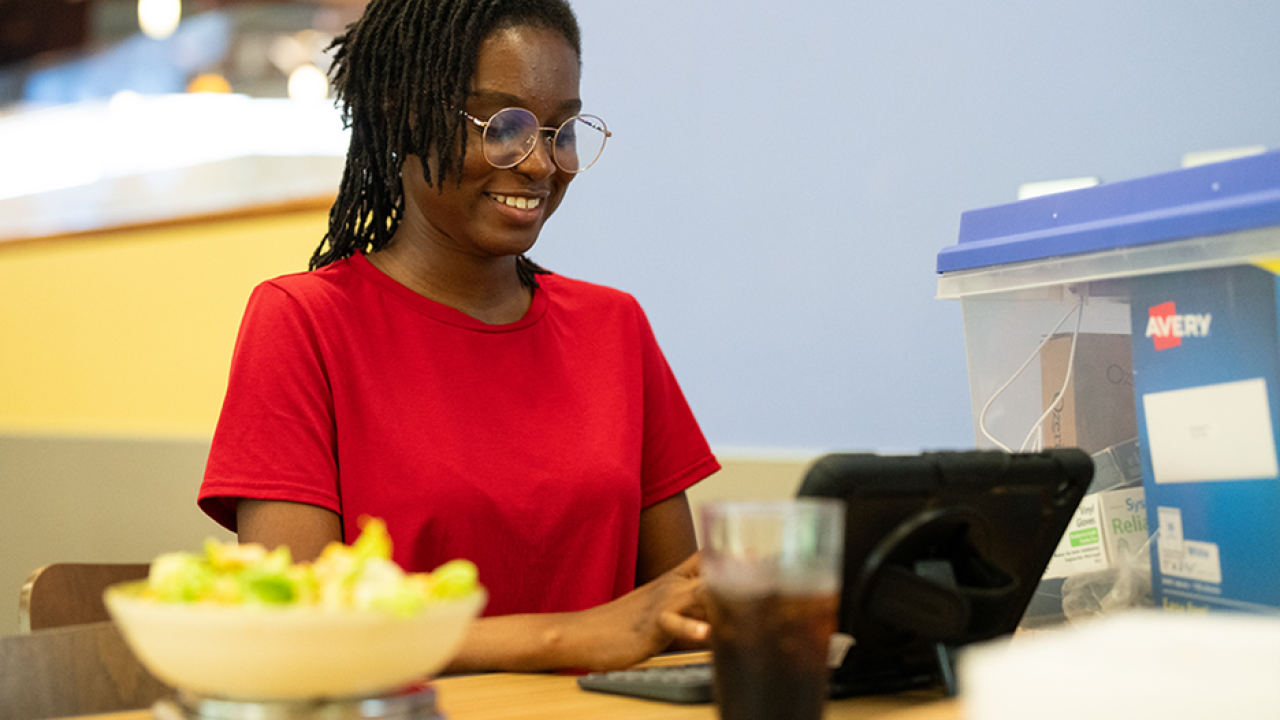
Smart App ‘Nudges’ Users to Make Healthy Food Choices
UC Davis Researchers Developing Tool to Simplify Dietary Tracking and Improve Nutrition
Sometimes, all it takes to eat better is a little nudge in the right direction. A team of UC Davis researchers is working on a new smartphone app that makes it easier to eat healthy by recognizing what’s on your plate and offering personalized suggestions to improve your diet.
The app is called FRANI, short for Food Recognition Assistance and Nudging Insights, and it uses artificial intelligence (AI) to recognize foods from photos, estimate portion sizes and give detailed nutrition information. Users can snap a picture of their meal, and FRANI’s machine learning technology identifies the food and pulls data from sources like the U.S. Department of Agriculture to show calories, vitamins, proteins, fats and more. While the app is currently being tested in Ghana and Vietnam, the UC Davis team is focused on adapting the technology for foods commonly eaten in the U.S.
“The aim is to improve the accuracy of dietary estimates,” said Lauren Au, an associate professor in the Department of Nutrition. “People take so many pictures of their foods as it is, it’s adding to that process, with the ultimate goal towards adopting a healthier lifestyle.”
FRANI goes beyond tracking what a person eats, it also gives personalized “nudges” to help users make healthier choices – like increasing fruit and vegetable intake or cutting back on sugary foods. Users can set dietary goals, such as eating more whole grains and reducing sodium. The app tracks their progress and provides feedback. Messages like “you’re doing well,” or “eat some whole grains today,” will appear on screen throughout the day. Users also get a report with the day at a glance.
“There are other AI apps out there that do dietary photo recognition, but this one has a component to try to encourage behavior change,” Au said. “This is an app that people can personalize to fit their needs better.”
Innovation at your fingertips
The U.S. version of the app is still in the early stages of development. This summer, the UC Davis team took more than 4,000 photos of foods and meals at the Segundo Dining Commons to train the AI. The team is also uploading nutrient data from national databases to guide the AI in matching each dish or food item with its nutritional content. For example, since the photo and nutritional profile of a cheeseburger are fairly consistent across different settings, FRANI should be able to assess a cheeseburger whether it’s from the dining hall, chain restaurant or a backyard BBQ.
Christabel Ampong Domfe, project manager and a Ph.D. student studying nutritional biology, has a background in testing innovative dietary devices. Before joining Au’s lab at UC Davis, she worked on several projects researching various technology-based tools for monitoring food consumption, including wearable sensor cameras attached to eyeglasses or clothing, while earning her master’s degree from the University of Georgia. She’s particularly interested in how the FRANI app can support her peers, especially those navigating the challenges of making healthy food choices in college.
“The importance of nutrition cannot be overemphasized,” Domfe said. “For students, when they come to college they have independence, they get to make their own food choices, so it’s good to have something like this, reminding them to eat healthier.”

Future plans
The team plans to run a validation study to see how well FRANI’s food assessments line up with what people actually eat using weighed food records. This will help them fine-tune the app’s accuracy and ensure it is giving spot-on recommendations. They hope to have the app ready for that phase by the end of next year.
Over time, the data collected from this app could help advance public health guidelines and inspire new research on the long-term effects of different diets. Au also believes FRANI will offer a reliable resource for those looking to improve their eating habits.
“A lot of people get information from unreliable sources; a lot of social media is driving people’s decisions, and what I like about this app is that it’s evidence-based,” Au said. “We’re linking it to real nutrition data and the recommendations will be evidence-based as well.”
This project received funding from a grant by the UC Davis Academic Senate.
Media Resources
- Lauren Au, Department of Nutrition, leau@ucdavis.edu
- Christabel Ampong Domfe, Department of Nutrition, cadomfe@ucdavis.edu
- Tiffany Dobbyn, College of Agricultural and Environmental Sciences, tadobbyn@ucdavis.edu
- Photos by Jael Mackendorf, UC Davis
